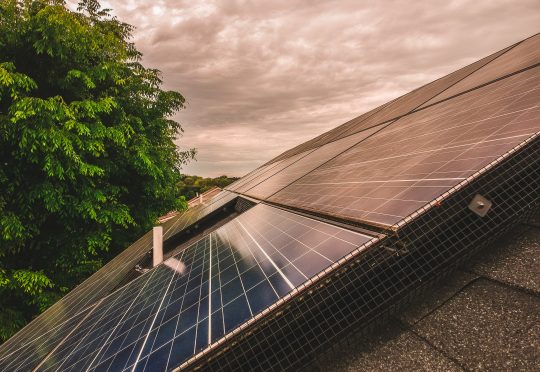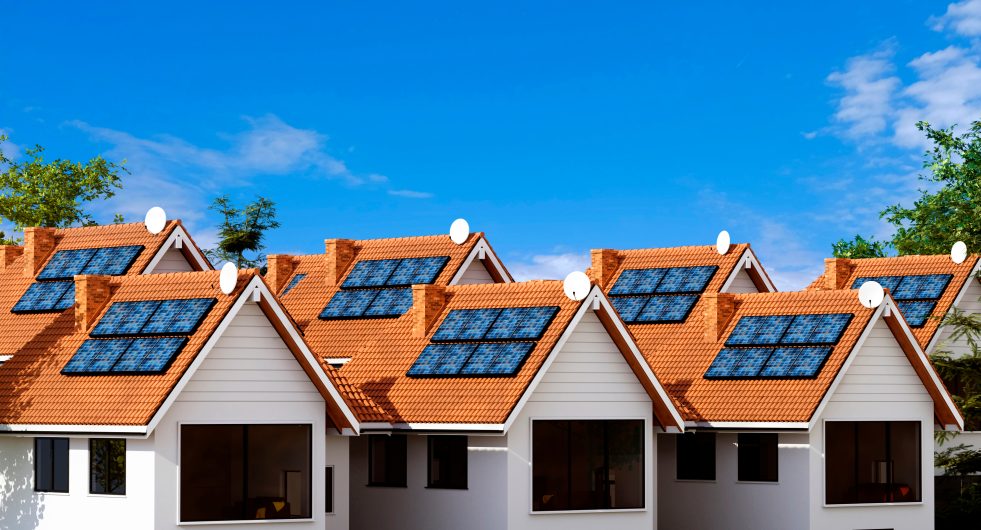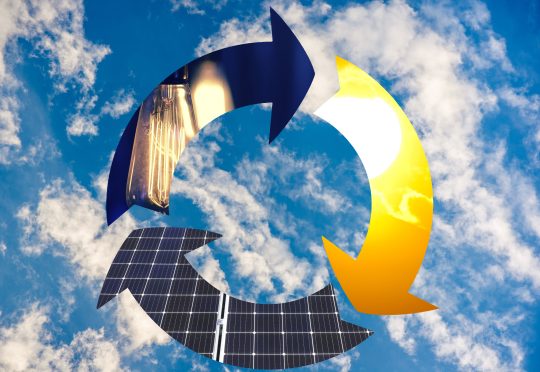
As of 2020, 3.7% of homes use solar to some degree. A big incentive for solar is the decreasing costs, thanks to the Solar Energy Technologies Office investments. Solar panels can make your home less dependent on electric energy, allowing you to save money and protect your home during bad weather and power outages.
If you’re contemplating going solar, here’s what you should consider.
What is Solar Energy?
Solar energy is renewable energy. It doesn’t pollute the earth or become depleted. Instead, the energy comes from sunlight, turning the energy into power. The power is then turned into electricity.
To get solar energy in a home, your home must have solar panels. You’ve likely seen them on rooftops or in large fields. The sun hits the panels, and the panels absorb the sunlight’s photons. The cells absorbed have two parts – a positive and a negative layer.
The Parts of the Solar Panel System
The solar system has three main parts: panels, inverter, rack, and mounting. Some homeowners will also have a storage battery, but this is optional.
- Panels – The panels are what you see on a roof or in a field, capturing the sun’s photons. There are several types of panels, but monocrystalline and polycrystalline are the most common.
- Rack and mounting – The rack and mounting system keeps the panels secure on your home and increases their chances of capturing photons.
- Inverter – Most appliances in your home don’t use DC energy (direct current), so the inverter changes it to AC (alternating current) energy.
- Battery – Solar battery storage stores any unused energy for you to send back to the grid or save for when the sun goes down if you don’t want a hybrid home (using both solar and traditional energy)
How Solar Energy Works
By combining the powerful properties of phosphorus and boron, solar cells are able to capture energy from the sun. Through a carefully balanced electrical field created by these two elements, electrons can be drawn out when light strikes – creating an efficient stream that powers your home.
After creating the energy process, the current works toward an inverter in your home. This is because the energy produced by the sun is DC energy (direct current), and it must be converted to AC (alternating current) to use in your home.
The inverter uses electromagnetic switches to create a current that mimics AC energy. More advanced inverters also have transformers to make the waves more synchronized and run smoother for appliances requiring it.
The final step is to send the energy to your breaker box. The electrical box is responsible for distributing the energy to the necessary appliances. When using the power, you won’t notice any difference in how your appliances run.
What if you Don’t Use all the Solar Energy?
Chances are your home won’t use all the solar energy it traps, so you have two options to use it, either store it or send it back to the electrical grid.
Storing Energy
You may consider storing excess solar energy if you live off-grid or don’t want to rely on the energy company. First, however, you must have a solar energy backup to keep excess energy.
The battery uses lithium ions that react with the free electrons. It stores the energy until you need it. When you do, the positive lithium ions will move the energy to create the energy you can use.
Send the Energy Back
If you plan to stay on the grid, you return the energy to the utility company’s grid. To measure what you send back, you must have a net meter to get credit for the energy you send back. This works best for homeowners who use a hybrid of solar and traditional energy.
How to Tell if your Home is Good for Solar Energy
Not all homes can use solar energy. To tell, you can consult with a solar panel professional or try Google’s Project Sunroof.
Common reasons solar panels don’t work on a roof include the following:
- Excessive tree coverage
- Sloped roof
- An old roof that needs replacement
If a consultation determines your home is suitable for solar energy, you may benefit from community solar panels. With community panels, everyone contributes to the cost and shares the energy.
Will you Save Money Going Solar?
There isn’t a cut-and-dry answer to whether you’ll save money going solar. Instead, the answer depends on how much energy you use and the amount of solar energy you capture.
It also depends on how you finance your solar system. For example, some homeowners buy their system, and others lease.
Your savings also depend on the amount of sunlight the roof gets for your system to capture energy. Finally, it depends on whether your utility company will credit you for power returned to the grid.
In many areas, solar costs are less than utility company costs, but it varies by location, so it’s always worth having an energy consultation to determine if you’d benefit.
Final Thoughts
If you’re thinking about going solar, you have the opportunity to save money and help the environment. There are many ways to go solar, and what’s right for you depends on your house, roof, amount of energy used, and whether or not you live on the grid.
Work with a reputable energy company to determine if your home is a good candidate for going solar. Be sure to shop around for different deals on panels, including leasing and buying systems.
If your home isn’t a good candidate for going solar, consider community solar or a hybrid setup where you use traditional and solar energy.
There are many ways to lower your energy uses and utility bills, but the key is to find the one that works best for you and your family.


